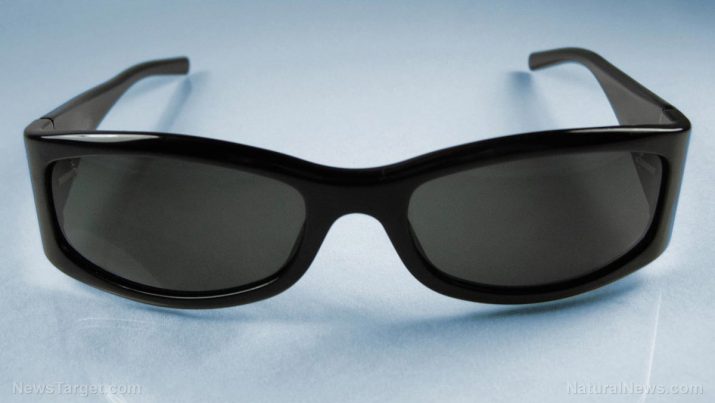
Watch your words: Smart glasses that can turn words into voice invented for visually impaired
Thursday, June 28, 2018 by David Williams
http://www.futuresciencenews.com/2018-06-28-watch-your-words-smart-glasses-that-can-turn-words-into-voice-invented-for-visually.html

A few years ago, it looked like the consumer electronics market was going to be flooded with high-tech smart glasses that are connected to the internet and able to perform all sorts of internet-reliant tasks. However, the idea for smart glasses, in general, proved to be far too broad and vague to be truly viable for use in the real world. And so they were shelved as mere novelty gadgets, never to be seen again.
But a company in Japan has been working steadily at their own iteration of a pair of smart glasses that has a specific type of target customer in mind. The smart glasses, which were made by a company named Oton Glass, have the special ability to convert written words as seen through its lenses into spoken words that can be heard through a built-in earphone. They have been in development since 2012 and now stands as part of an ongoing crowdfunding project.
According to a report about the Oton Glass smart glasses, they were developed mainly for individuals who are dyslexic or for those who are otherwise having difficulty reading. The glasses are equipped with two tiny cameras – both facing opposite directions – and the aforementioned earphone that’s present on only one side. Half of the lens is said to be a mirror that serves to reflect a user’s eye so that the inner-facing camera can track blinks and other eye movements.
Based on information from a separate report, it seems like capturing text to turn it into voice needs to be done manually. As the report states, “Simply clicking a button on the device captures text as information,” and this information then gets sent to a dedicated cloud system – based on the Raspberry Pi microcomputer – and it is there that the words are converted into voice before being spoken through the earpiece.
As you can imagine, this setup is pretty far from perfect. In fact, the company Oton Glass has already accounted for it: in case the proprietary system that makes their smart glasses work doesn’t succeed in analyzing text and converting it into voice, a remote worker can be asked for help in troubleshooting. Despite these shortcomings, however, the system is still streets ahead of existing alternatives such as Google Translate, wherein a user needs to physically fish out their phones from their pockets and manually swipe over lines of text. Compared to that, simply blinking and then pressing a single button is much more convenient.
For the individuals who will end up using it, Oton’s smart glasses will likely be life-changing. Those who have dyslexia, in particular, will no longer need to rely on just their eyesight to read words, whether on a screen or otherwise. All they’d have to do is to use the text-to-speech translator available on the smart glasses and they will be able to hear the words spoken out loud in just a matter of seconds. Misspellings or misreadings wouldn’t matter one bit.
As of this time’s writing, the crowdfunding effort for the production of these smart glasses is still ongoing. So far, Oton Glass has received almost 1.7 million Japanese Yen (a little over $16,000) out of its 10 million Japanese Yen target ($94,300). If it manages to meet its crowdfunding goal, Oton Glass promises to offer their smart glasses in the open market for about $47 each. It’s a noble effort, to be sure, but it looks like the market will decide whether or not this product needs to exist right now. The world will know in a couple of months.
Read more about other thoughtful devices at Inventions.news.
Sources include:
Tagged Under: Tags: Crowdfunding, dyslexia, dyslexic, eyesight, Eyewear, future tech, gadgets, Glasses, innovation, inventions, Oton Glass, reading, science and technology, smart glasses, vision, visually impaired





